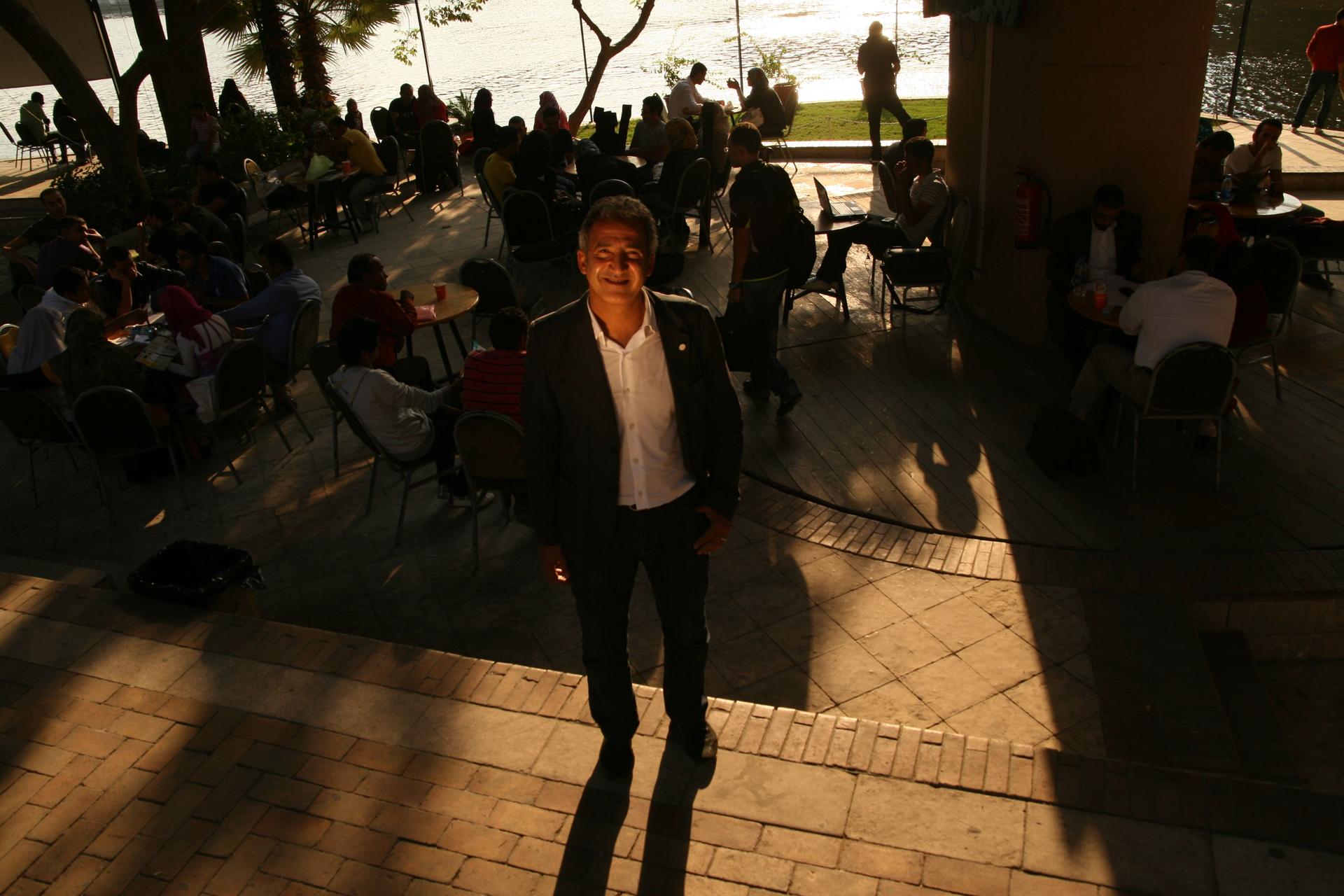At popular arts center, Egyptian youth crave political insight
Mohamed El Sawy at his El Sawy Culturewheel in the Zemalek neighborhood of Cairo, October 2011.
CAIRO — El Sawy Culturewheel had traditionally been an open venue where artists could exhibit splashes of color while musicians tested out their music on open-minded crowds. Until the revolution, it was a largely apolitical place.
But the Culturewheel — which draws more than 20,000 people per month — has become a different kind of place since January, said founder Mohamed El Sawy.
Audiences have become intoxicated with creative interpretations of the people’s revolution that ousted dictator Hosni Mubarak in 18 days packed with raw emotion and raw art.
Musicians were born in Tahrir Square, painters are infusing their work with revolutionary spirit and the Culturewheel is hooked on a dose of politics.
“We need to reintroduce chaos,” said El Sawy, a former advertising executive and longtime advocate for artistic freedom who has had an uncanny knack for connecting with Egyptian youth.
His team has began offering seminars on Egyptian politics to a young audience that can’t seem to get enough, while playing host to a new generation of post-revolutionary artists.
El Sawy said that democracy starts with an open space for arts, culture and politics. Briefly the minister of culture in the waning days of Hosni Mubarak’s reign, he fervently calls for expanding the country’s spaces for artistic expression and throwing political awareness into the mix.
The Culturewheel’s El Sakia Academy has taken the lead on organizing political programs, soaking up the political scene to become an arena that instantly reflects what’s happening in the country’s dynamic public space.
“Whenever something hits the news hard, we take an immediate reaction, and we invite pundits to discuss the issue,” said Sakia’s seminar coordinator, Khaled Fathi. “We see what the street needs, and do that.”
And right now the street, still learning what democracy is all about after 30 years of Mubarak, needs information to help shape its opinions. The Culturewheel is now welcoming an influx of Egyptians seeking exposure to a spectrum of views to help them form their own. They yearn for enlightenment, Fathi said, because the former regime was deliberately blowing out sparks of creativity.
Mohamed Badawy, a graphic designer for the Culturewheel, said the revolution has encouraged the masses to dabble with politics. A few months ago, Sakia opened its space for 15 political parties to discuss their political roadmaps to the audience.
“On the streets downtown you hear people talking about politics,” he said. Once a promenade of muted frustrations, Cairo’s streets today are a rowdy arena for strident discussion.
The revolution has also encouraged many artists to unleash their creative energies, Badaway said. Stifled before the revolution, today the cultural scene is much more open. Artists are now eager to incorporate revolutionary sentiments in their work. And indeed, across Cairo’s galleries in the months following the revolution, three colors dominate: Red, white and black, those of the Egyptian flag.
The story you just read is accessible and free to all because thousands of listeners and readers contribute to our nonprofit newsroom. We go deep to bring you the human-centered international reporting that you know you can trust. To do this work and to do it well, we rely on the support of our listeners. If you appreciated our coverage this year, if there was a story that made you pause or a song that moved you, would you consider making a gift to sustain our work through 2024 and beyond?
